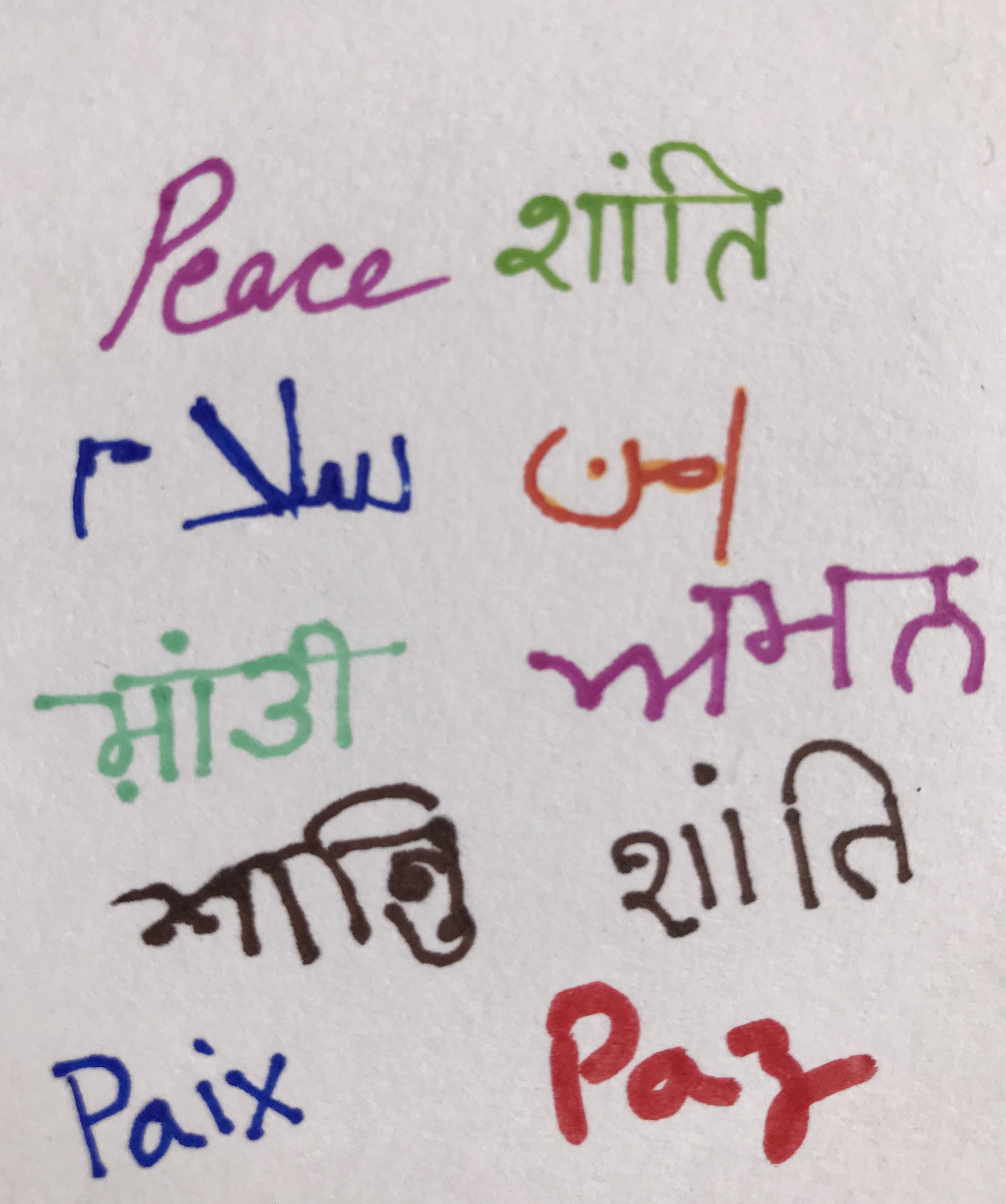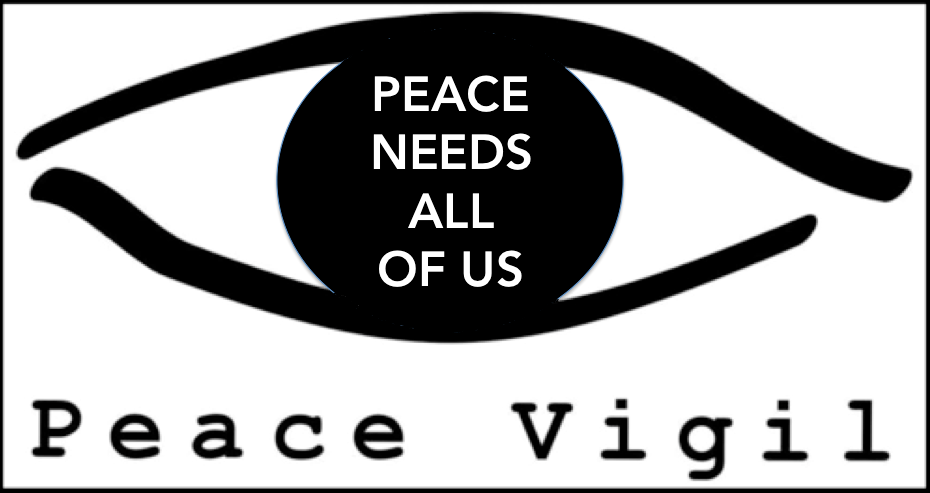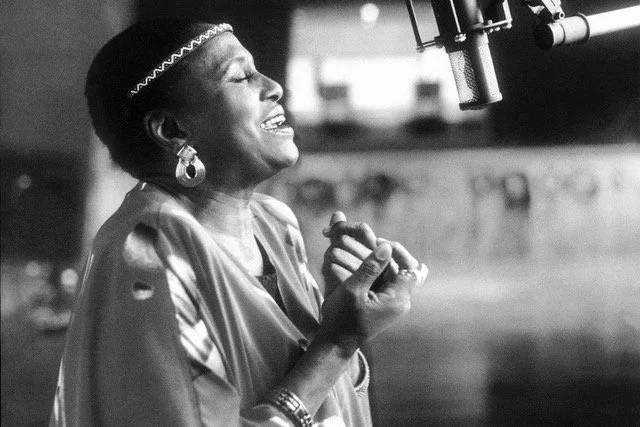How Calendars Give Hope
Even the most optimistic of us despair. As a peace educator, I give trainings and lectures, make videos and design workshops that help people appreciate and protect diversity, coexistence and dialogue. I am expected to give hope against bigotry, hate and tensions arising out of misinformation, propaganda and fear. My work is essentially the work of hope because it is based on the firm belief that love triumphs hate.
But I must admit that I do despair. It is impossible not to when every single day there are attacks on human values.
Do you know what brings me back to hope? The fact that people in every age and every part of the world have worked with all their might to promote and protect peace. The number of these people has sometimes been small, sometimes big; sometimes they have succeeded and sometimes they have not. But always – every single time that there was an effort to kill diversity, syncretism and coexistence, people stood up to defend these virtues.
Let me give you an example about today – March 21. Today is Human Rights Day in South Africa. In 1960 on this day, 7,000 people came out to protest in Sharpeville against the pass laws of the Apartheid government. In a nutshell, pass laws made it illegal for any Black person in South Africa aged 16 and above to step outside their home without their passbook – a passport required within your own country! It was more than just an identity card – it had extensive information about you. It had your personal information, like your name, address, etc. But it also had permission or denial of entry to enter parts of your own country. For example, if a Black person wanted to travel from Johannesburg to Durban, s/he could only do so with a police permission granted to leave Johannesburg and another to enter Durban. If the passbook did not have these permissions, the person would be arrested. Also, a government employee could cancel these permissions at any time. The passbook also had your “behavioural” information entered by your employer. Your employer by legal definition under Apartheid, had to be a white person.
The aim of pass laws was not only to keep strict control over the lives of Back people but to enforce very strong racial segregation. Apartheid, we must remember, means apartness or keeping people separate – in this case on the basis of race. It also means enforcing a hierarchy where one set of people are considered superior and enjoy many rights and freedoms while another set works more or less like slaves. The second set lives at the mercy of the first with no control over their own lives. It is basically a system of extreme exploitation and the pass laws were a powerful tool in the execution of this system.
On March 21, 1960, in response to a call for nationwide protest against these laws, 7,000 people came out on the streets of Sharpeville, a township (where Black people were forced to live) of present day Johannesburg. The police opened fire on them, killing and injuring many. Among the murdered were 29 children.
Today, in the post-Apartheid South Africa, March 21 is celebrated as national Human Rights Day because the massacre of Sharpeville was a turning point in the anti-Apartheid struggle. It outraged people, both nationally and internationally. The demonstrations, protest marches, and strikes became so fierce and widespread that the government declared a state of emergency on March 30. More than 18,000 people, including prominent anti-apartheid activists were arrested.
Internationally, sympathetic demonstrations were held by people in many countries. The Sharpeville massacre was condemned by the United Nations. Almost immediately, (April 1 1960), the UN Security Council passed Resolution 134 which, among other things, asked the government of South Africa to abandon Apartheid. The massacre also prompted the British Commonwealth to force South Africa out. South African Prime Minister H.F. Verwoerd was told in no-uncertain terms that his country can only be part of the Commonwealth if his government abandoned Apartheid. South Africa was re-admitted to the Commonwealth in 1994, following its first multiracial elections.
Following the national and international pressure, the government, in its fear, banned the two umbrella organizations, the Pan-Africanist Congress (PAC) and the African National Congress (ANC) as illegal. As a result, both organizations moved their operations underground but despite severe handicaps, the ANC’s support grew like wildfire. The story of how South Africa finally got rid of Apartheid is for another day but today, I bring you back to March 21.
I started this letter by talking about despair and hope. Sharpville was a time of deep despair. Not only was there death but the whole movement against apartheid was under unprecedented attack. There is no doubt that activists felt hopeless and discouraged. But they had only two choices – to quit or to fight back. They chose the second and did it with all their might and creativity. They won. Apartheid ended in 1994.
People fighting for justice can also lose. There are numerous examples from history. But what cannot be denied is that people fight injustice every single time. That, my friends, is our inspiration. One way to be inspired to keep working for human values is to just look at the calendar! Look at March alone – the history of people defending human values is wonderfully represented in this month. I will only mention a few examples but do read up more on what this month has to offer us to keep faith. March 8 is the International Women’s Day. It is the result of the proud history of women working for better wages, working conditions and the right to vote in Europe and North America. Related to the Sharpeville massacre is the International Day for the Elimination of Racial Discrimination on March 21. March 24 is the International Day for the Right to the Truth Concerning Gross Human Rights Violations. It’s background is in the struggle of the people of El Salvador against a military government. One of the leaders of this movement was Archbishop Oscar Romero. His weekly sermons were broadcasted on a private radio channel and he also ran a weekly newspaper. He was extremely popular and was seen as a huge threat by the military government. He was murdered in 1980. In his last sermon, he had called on Salvadoran soldiers to follow their Christian faith by refusing to carry out the government's repression.
My task as a peace educator is to bring to you information and knowledge that makes peace a reality. Peace Vigil protects and promotes the human instincts of finding peace and the peace-building treasures of knowledge from around the world. We do this through the various tools we produce – workshops, lectures, quizzes, dramas and songs. We see building peace as a living and continuous tradition, not as a vague ideal. We hope that through our work, you can also see that peace is possible, that bigotry and hate can be overcome. It is not a goal; it is a continuous struggle.
I leave you with the words of Miriam Makeba, the great South African singer, songwriter and activist: “The man at the desk took my passport. He did not speak to me. He took a rubber stamp and slammed it down. Then he walked away. I picked up my passport. It was stamped 'Invalid'. 'They have done it,' I told myself. 'They have exiled me. I am not permitted to go home — not now, maybe not ever.” She became then one of the mightiest international advocates of the anti-apartheid movement. She did it through her songs that inspired millions across the world to take up the cause of South African freedom.
Hang in there! We can do it.
In solidarity with all those struggling to end apartheid wherever they are. We hope that our work will help all of us keep going.
Shirin
Co-director, Peace Vigil
Peace Vigil works on Peace Education. Peace Needs All of Us.





